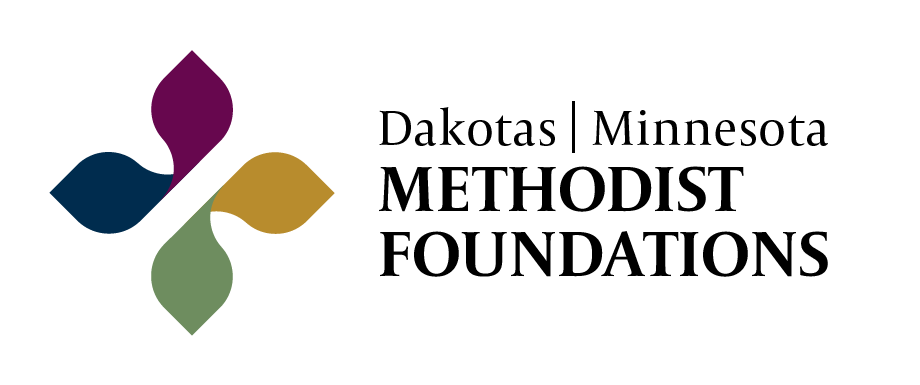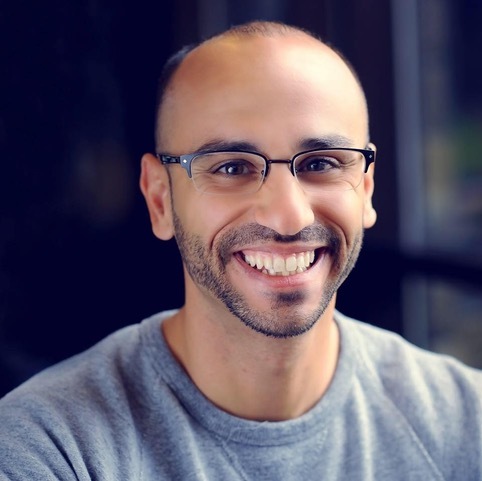
Roz Picardo: 5 tips to reach new people

Rosario "Roz" Picardo, executive pastor of new church development, Ginghamsburg Church, Ohio.
“I look at every ‘failure’ as an opportunity to retool and grow and be able to make adjustments the next time around,” says Rosario “Roz” Picardo, executive pastor of new church development at Ginghamsburg Church in Ohio.
Picardo is one of five keynote presenters who will present at REACH!, a first-of-its-kind Dakotas-Minnesota Area gathering taking place in Sioux Falls, South Dakota Oct. 5-6. It’s exclusively devoted to helping congregations reach new people. (Learn more and register here.)
Picardo is no stranger to introducing new people to Christ. He started Embrace Church in Lexington, Kentucky, which grew to three different communities. Then at Ginghamsburg, he served as pastor of a campus called The Point, which more than tripled in worship attendance under his leadership. He later planted and continues to lead another Ginghamsburg campus called Mosaic, a congregation of about 300 that meets inside a movie theater.
Here are five key pieces of wisdom that Picardo offers from his experience planting churches and reaching new people for Christ (hear more about these and more at REACH!):
1. Discover the flavor of your community: No matter which community you find yourself in, do a community exegesis, says Picardo. Work to really discover what it means to be in that particular community. That might include looking at demographic and other data, but at least as important is informal “on-the-street” interviews with residents. Picardo encourages asking the questions: “What does an effective church here look like to you? What would it be doing in the community?” Reaching new people isn’t about bringing your own values into an area. “It’s discovering the local flavor that already exists there and ways you can interact with what God’s already been doing,” he says. “We tend to think we’re invoking God’s presence in the community. We need to discover what God’s already been up to.”
2. Build partnerships: “You don’t always have to ‘own’ your event, outreach, or program,” says Picardo. “There’s so much benefit and power in partnering. It can bring goodwill to the community and gives you an opportunity to see what God does from there.” Mosaic partnered with its local parks and rec department, which had some funding challenges, by walking alongside of it as it hosted a kite event. Mosaic advertised the event, invited members of its congregation to attend, and paid for the kites and the food. The parks and rec department, meanwhile, provided the setting (a local park) and did its own advertising as well. The event went well, and Mosaic has since been able to partner with the department in other ways. For example, Mosaic’s band was one of the featured concerts in its summer concert series.
3. Keep people guessing: “Don’t get caught in the same cycle,” says Picardo. “Try to keep people guessing—yes, God’s going to move, but we’re not always going to do the same thing.” Mosaic is focused on bringing a global perspective, and since it launched, more than 30 languages have been featured in worship through prayers, scripture readings, and other elements of worship (which are also translated into English). Each week, a different language is featured, which keeps people guessing and adds something fresh to every service. People love this multi-ethnic component, Picardo says. “It adds variety and provides a picture of the kingdom of God.”
4. Discover your style of evangelism, and practice it: “For me personally, it’s sharing what God’s done in my life,” says Picardo. “It has to be good news for me before it can be good news for anybody else.” While door-knocking in the community works for some, it doesn’t work for everyone. For Picardo, evangelizing is done in the context of relationship and friendship. “For our church, it means participating in what God’s already doing in a given community,” he says. While Picardo isn’t going to be renting a loud speaker and preaching in public places, those involved with Mosaic are going to participate in community gatherings (like concerts and events in the park). “We want to let the community know we’re around,” he says.
5. Always think about what’s next: Many church planters are so focused on launching their new faith community that they don’t think about the steps after launch. “They’re so focused on inviting, inviting, inviting, but worship could be a mess or have no thought put into it,” he says. Worship should be carefully crafted, and there needs to be a discipleship plan in place. “You should always be thinking about the hand-off and what’s next,” he says. Reaching new people isn’t about getting them to come to your church once. It’s about helping individuals become devoted disciples of Jesus Christ.